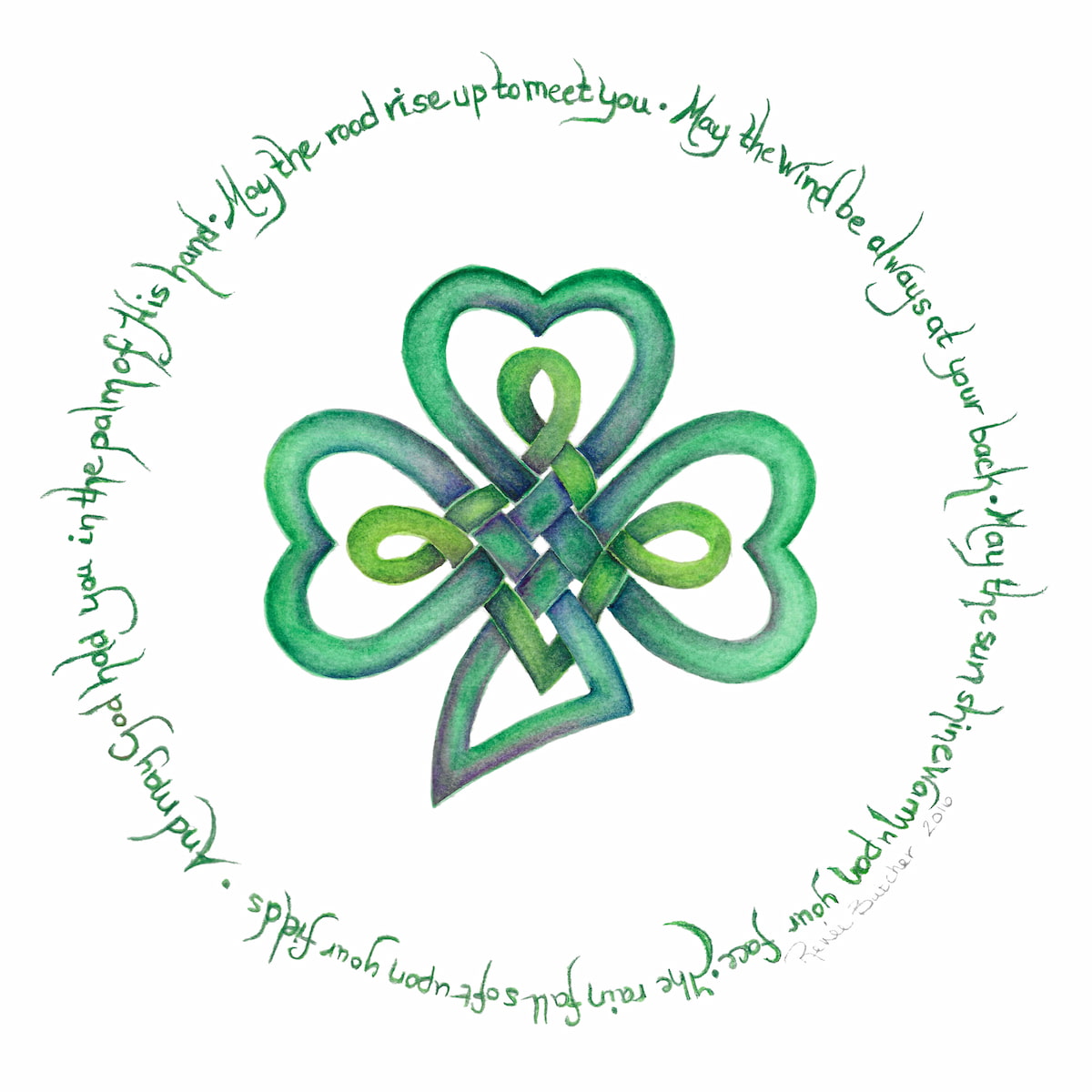St. Patrick’s Day is my favorite holiday. I love it more than Thanksgiving or Christmas or Easter, or even Arbor Day, but the reason might surprise you: it hinges solely on my status as an adoptee. If you were brought up with your biological family, you might not understand some of what follows: if you are an adoptee, you will probably understand before I tell you.
Ireland was my country of origin – the place where my ancestors worked and reveled and lived out their lives. Ireland – green, lush, and magical; it anchored my roots into the earth and lit the fire of my imagination.
Ireland – a place that grows story-tellers like Iowa grows corn.
Ireland – the epicenter of my birth-myth.
My Celtic Birth-Myth
It is well-documented that adopted children (particularly those from closed adoptions), when faced with questions they cannot answer about who they are and where they came from, tend to make up a “birth-family myth” for themselves. In their (our) minds, the story they tell their peers about themselves isn’t a fib: it is a selected truth – and the way they cope in the absence of a family back-story of their own.
I remember telling my story for the first time in kindergarten. We were all sitting in a circle, and our teacher Mrs. McClendon asked us if we knew anything about where our parents or grandparents came from.
“My great grandpa and grandma came to Oregon on a wagon train.”
“Jesse James is my uncle.” [Based on the teller, this is highly suspect.]
“My mother came over on a big ship from Poland.”
These are some of the stories I remember hearing my friends tell as we made our way around the circle. Listening to them, I remember feeling small, anxious, and alone. Then miraculously, when it came my turn, a story just popped into my head as if it had always been there, just waiting for me to tell it. So I did.
“My real parents [a term I used then – not now] were from Ireland. They were too poor to keep me, so they had to give me to the orphanage, and the orphanage people gave me to my mom and dad.”
With every eye in my class on me, I enjoyed my fifteen seconds of fame – and learned for the first time the power of a good story.
Over the years, my saga became more fleshed out as my story-telling skills improved, and at one time involved much melodramatic sobbing from my dear birth-parents – thin and frail, yet sustained by their passionate inner courage – as they stood on the docks of Portland’s harbor promising to one day find me, before they disappeared into a Brigadoon-like mist.
And as the story took on more life, I began to believe it myself, until after a few years, it was no longer just a story, but instead my reality. It defined me. That is what the stories we tell about ourselves do.
I could go on for pages, but suffice it to say that when I was young, and up until an embarrassingly late date in my life, when people asked me what I knew of my ethnic heritage, this was my story.
To this day, I love all things Irish. My favorite color is, of course, green, and I can take on a passable brogue without even thinking about it. (Seriously. I’m doing it right now.) I love the melodies and rhythms of Celtic music – everything from “Star of the County Down” to the Corrs – and can play quite a few traditional songs myself. I even have emeralds and Celtic eternity knots on my wedding ring. And the poetry. Yeats, Wilde, Joyce. Eavan Boland. The poetry astounds and enfolds me. It is beautiful in a way that makes it difficult to breathe sometimes. I cried the day Seamus Heaney died.
Needless to say, when I met my first-mom (so many years ago now), one of the first things I asked of her was, “Please, please tell me that I’m at least a little Irish!” When she assured me that I have more than enough Celtic blood to make the claim, I cannot tell you how relieved I was!
Whether Ireland runs through your veins, or you adopt it once a year and make merry, may you have a wonderful Saint Patrick’s Day – today and always.
Originally published on The Good Hearted Woman, March 17, 2015
